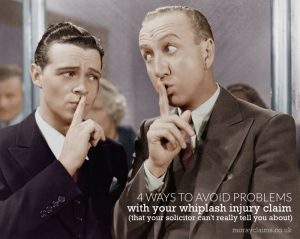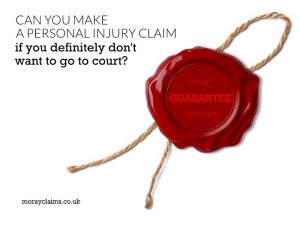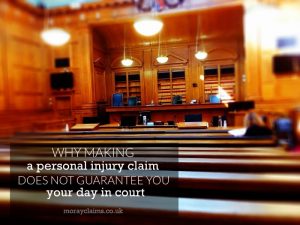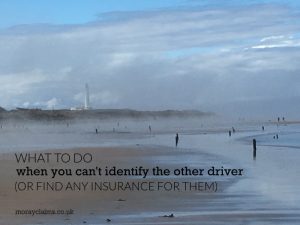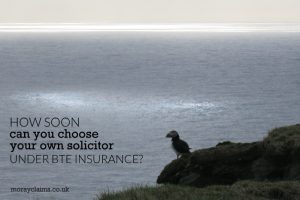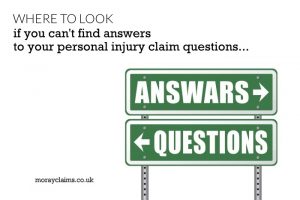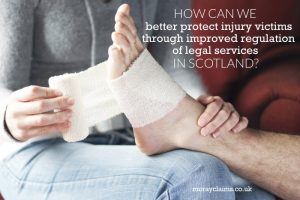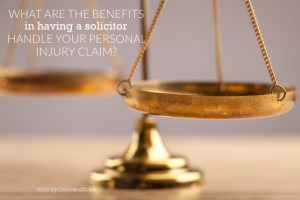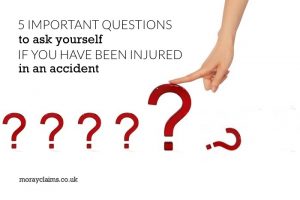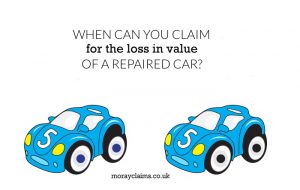Whiplash injuries are problematic because they are soft tissue injuries. They cannot be identified or confirmed on any form of medical scan. They can be difficult to diagnose. Because of this, they are controversial injuries. They can be exaggerated. It is said that they can even be faked. In May 2018, the insurer Aviva reported that the value and volume of fraudulent claims detected by them had increased for the second consecutive year. Aviva said it now rejected around one in eight whiplash claims because they were suspect or considered to be fraudulent. Putting the case for personal injury victims, on the other hand, the Association of Personal Injury Lawyers (APIL) pointed out that on the Association of British Insurers' own figures, only 0.17% of all motor claims are proven to be fraudulent. Motor claims include property claims due to fire, theft and damage, as well as personal injury. In other words, not all motor claims involve a personal injury element, so only a Continue Reading
Can you make a personal injury claim if you definitely don’t want to go to court?
Tilley hats might be the best in the world. They’ve been called “legendary” and “iconic”. Tilley hats float and, if lost or stolen, can be replaced for half their full purchase price. Should the hat wear out due to normal wear and tear, poor workmanship or faulty material, it will be repaired or replaced free of charge. Tilley hats are guaranteed for life. In 2013, a Guardian reader reported that, when the fabric of their hat split after 17 years, Tilley still honoured the lifetime guarantee and replaced it. They’re expensive hats but the various risk-reversal elements clearly help keep them desirable purchases. A guarantee can make a big difference to how likely we are to choose a product or service. In the context of personal injury compensation claims, not everyone wants to have their day in court. On the other hand, in another article on this website, we’ve considered the pros and cons for those who want a guarantee that their personal injury claim’s outcome will be Continue Reading
Why a personal injury claim does not guarantee you your day in court
Can you have your day in court, with a personal claim, if that's what you want? Donald Trump used the Rolling Stones’ recording of their 1969 song “You Can't Always Get What You Want" during his 2016 primary and presidential campaigns. Following the Republican National Convention in July 2016, which was widely televised, the Stones went public with their views on the use of the song composed by Keith Richards and Mick Jagger. They stated that they did not endorse Trump. They also requested that Trump should stop using their songs to support his message. Despite these requests, Trump continued his use of the song at rallies, even beyond the 2016 presidential elections. It seems that, even if you are the Rolling Stones, you can’t always get what you want. It is also the case that, if you are an injured person with a personal injury compensation claim, you can’t always get what you want – and we’re going to look at some aspects of that in this article. Most people ask if they Continue Reading
Uninsured and untraced drivers and personal injury claims
It's compulsory to have insurance to cover the risk that a third party will suffer loss because of your driving That’s the case whether the “injury” is to property or a person. As at 2016, however, figures published by Churchill Insurance suggested that, across the UK, there were estimated to be over a million uninsured motorists. In the worst urban hotspots (e.g. parts of London), you have as much as a one in eight chance that any motorist involved in an accident with you will be uninsured. What are important things to know if you are involved in an accident with an uninsured (or untraced) driver? The Government set up the Motor Insurers’ Bureau (MIB) in 1946. It is a limited company and it aims to help those who have suffered loss due to the actions of an uninsured or untraceable driver. The underlying principle is that no person should be left uncompensated because a driver who causes an accident is uninsured. Since the 1970s, the MIB has been an important means by Continue Reading
How soon can you choose your own solicitor under Before the Event insurance?
We’ve covered the topic of Before the Event insurance in other articles. Before the Event (BTE) Insurance is legal expenses insurance you can choose to take out. It means that if, for example, you are injured in an accident, the insurance covers the cost of legal advice on the prospects of claiming compensation. It’s an alternative to other funding methods such as no win-no fee and legal aid. One of the friction points of BTE Insurance is that you usually have to use the BTE insurer’s own panel solicitor for legal advice in the early stages. The justification most commonly given is that BTE insurers prefer to use their own panel solicitors for valid commercial and quality-control reasons. You can’t use, say, your own local, specialist solicitor for advice under the policy in the initial stages of advice. (You can still use them for advice, it just won’t be under the policy - which may not be a problem, in fact). The situation changes if it becomes necessary to raise a court Continue Reading
Where to look if you can’t find answers to your personal injury claim questions
Typos in stock photographs can be good inspiration. How annoying would it be if you could only find “answars” and no answers? And it turns out that, once you start looking for them, spelling mistakes in premium photographs keep turning up. If you don’t manage to “upgrade your life”, take heart from the fact that it might still be possible to “uprgade your life”. The above photo is marketed as “Upgrade your life”. So someone wrote this, someone photographed it and someone uploaded it to a website for sale. None of them noticed the jumbled up letters? Not seeing the wood for the trees is a problem for anyone who puts information on a website in the hope of helping others. Another aspect of this is the “curse of knowledge”, where you assume that your reader’s understanding of your topic is greater than it really is. If you pitch the level too high, your readers will leave before they’re much past the headline. On this website, we try to answer questions at a Continue Reading
5 ways we can better protect injury victims through improved regulation of legal services in Scotland
We want the law to offer better protection to consumers, right? An independent review of the regulation of legal services in Scotland is under way. The Minister of Community Safety and Legal Affairs, Annabelle Ewing, announced the review on 25 April 2017. The idea is get recommendations to reform and update the framework which regulates who can provide legal services and, for example, what complaints procedures should be available. In announcing the independent review, the Minister emphasised the main objective as placing “consumer interests firmly at the heart of any system of regulation, including the competitive provision of legal services.” While there is competition across the board to win business providing legal services to consumers, personal injury is one of the most competitive areas. In 2016, for example, a study by the online magazine, Search Engine Watch, worked out the UK’s most expensive Google Adwords. (These are the adverts at the top of any search Continue Reading
What are the benefits of a solicitor handling your personal injury claim (compared to a claims management company)?
In this article, we are considering the situation where you are making the decision between instructing a solicitor to represent your interests in a personal injury compensation claim and instructing someone else – such as a claims management company. We are not considering the situation where you are deciding between having a solicitor and representing your own interests. Grigor & Young LLP / Moray Claims have other articles about the pitfalls of a DIY personal injury claim and the perils of negotiating directly with the third party insurers. The 3 factors we want to highlight here are certainty, insurance and expertise. First of all, certainty. 1. It gives you certainty about who you are dealing with. Only those who undertake wide-ranging education, training and ongoing “Continuing Professional Development” are permitted to practise as a solicitor. At the moment, claims management companies are not regulated in Scotland. Anyone can set up a claims management Continue Reading
5 Important Questions to ask yourself if you have been injured in an accident
In a 1994 episode of The Simpsons, Apu is sacked from his job at the Kwik-E-Mart. This is the result of him selling a customer (Homer) meat which has gone off. Subsequently, Homer feels sorry for Apu, who stays with the Simpson family while he is looking for another job. They devise a plan to visit the President of Kwik-E-Mart in the Indian Himalayas and ask for Apu's job back. The President allows visitors to ask him a maximum of three questions. Of course, Apu only needs a single question – “Can I get my job back, please?” – and, of course, Homer messes it up for him. When they eventually get their audience with the President, high in the mountains, Homer is taken aback by the boss's appearance - a guru with long white hair, sitting cross-legged. Before Apu can get a word in, Homer asks: “Are you really the head of the Kwik-E-Mart?” (Yes). “Really?” (Yes). “You?” (Yes). At that, their questioning rights used up, the President asks them to leave and “come Continue Reading
When can you claim for the loss in value of a repaired car?
Where there is a personal injury claim arising out of a road traffic accident, there is often a claim for damage to a car as well. As we have discussed elsewhere, claims for damage to vehicles will be valued on the basis of the lower of: the cost of repairs; and the net pre-accident value of the vehicle (in other words, the pre-accident value of the vehicle, less any scrap value). Another way of putting it is to say that, if the cost of repairing your vehicle will be “too high” relative to its value, the maximum you will get for it will be its net pre-accident value. What if your car was very new when it was damaged? In that case, while it may be economical to repair the vehicle, you might well feel that your repaired vehicle - even if it has been very well repaired – has lost value compared to what it would have been worth for resale if it had not been in an accident at all. It’s an interesting question: whether the owner of a car which is damaged in a road traffic Continue Reading
Why it matters if you have a contribution for Civil Legal Aid
One of the ways to fund a personal injury claim is by means of legal aid. Advice and assistance is available to cover the preliminary work, including intimating the claim and negotiating with the third party or their insurers. If the negotiations break down for any reason, you will need to raise a court action if you are going to achieve a fair settlement of your claim. Under legal aid, you need to apply for Civil Legal Aid, which requires various forms to be completed. This includes providing details and vouching of your income and capital. The application is then submitted to the Scottish Legal Aid Board (SLAB) via an online system. SLAB have various tests they apply in determining whether civil legal aid should be granted. This includes such things as: the value of the claim (and whether this is significantly in excess of any offers that have been made already to settle your claim); the prospects of success (anything less than 50% chances of success is going to Continue Reading
How does your solicitor negotiate your personal injury claim with the insurers?
We got some questions from a client about the general issues which arise when you're negotiating a personal injury claim with an insurance company. An article seemed like a good way to bring these answers to a wider audience. (Note that we have also based a podcast on these same questions - go here if you would prefer to listen rather than read). We're talking about the stage in a claim where liability has been admitted and it's about maximising the settlement figure with the insurers. The hope is that it will be possible to agree a figure by negotiation but, in the background, there's always the possibility that you might need to raise a court action to achieve a reasonable level of compensation. What tactics and strategies apply here? Do we have to show our hand first rather than let the insurer make an initial offer? This is generally the way it is done. Claims in Scotland are most often negotiated according to a pre-action protocol - basically, an agreement between Continue Reading
